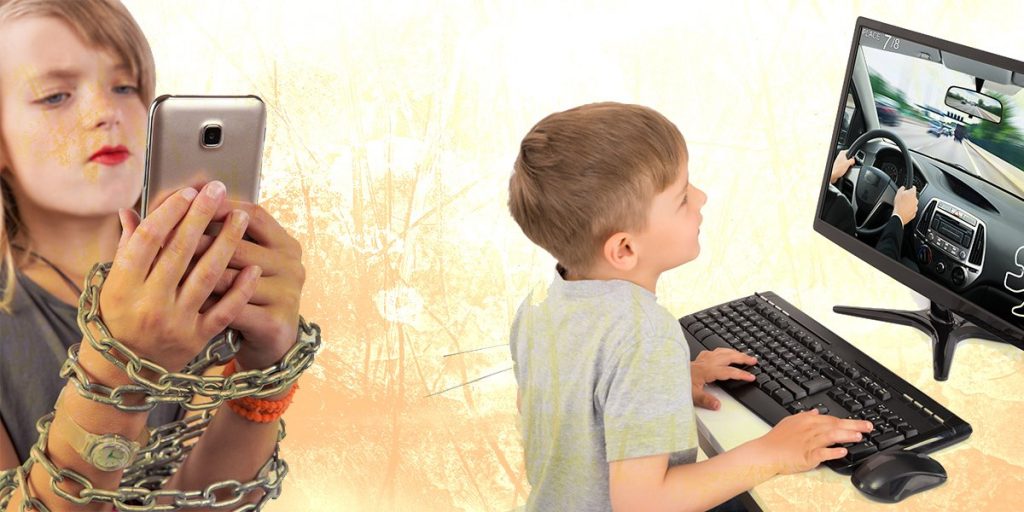The casual acceptance of the transference of meaningful conversations to non-human connections could prove fatal.
This planet has never been more digitally
connected. It seems as if we are constantly looking
for some new technological holy grail that will
bring our families closer together.
Technology is creating faltering relationships and leading to very real injuries — psychological and physical.

As the good people of this planet have become more reliant on making connections through technology, we have begun to ignore reality. Too often we choose not to engage with fellow human beings while growing ever more uninhibited by smartphones and other digital devices, even when in the presence of others. This excessive use and dependence on technology has dehumanized and depersonalized us.
From our personal to professional lives, we are losing our real selves to a grand illusion.
But is it too late to do anything about it?
Apple Inc. recently disclosed that many people wish Siri, the digital assistant on its Mac OS X line of products, could be more like a best friend; someone who will listen when others won’t.
This reflects the painful truth.
Today, all of us, using technology fit into this complex paradigm in one way or the other. The only difference would be in aptitude. We are being silently conditioned to leave behind face-to-face interaction. Communications technology can only sell itself if it poses plausible alternatives. Unfortunately, many of these are not in our favor.
The transfer from cash in hand to plastic money was not fatal, but the casual acceptance of the transference of meaningful conversations to non-human connections just may be. With an excessive use of technology in our lives, people have become so immersed in these virtual netherworlds that they no longer are as present in the flesh-and-blood world.
I am reminded of the 2004 movie, “I-Robot,” in which robots stood around baking cupcakes and talking about boys. Back then, it received mixed reviews, with critics praising the writing, visual effects, and acting; but others discrediting the plot. Some said the main idea behind the movie was that robots were not all that special.
The writer and director might as well have been foreshadowing 2016; what was irrelevant then has become highly relevant. We have reached the point of numbness at which the musings of a person in the same room are casually revealed and accepted via text. This used to be routine in offices but not in homes.
To confront the problem head-on, a Massachusetts family in 2013 implemented an Internet Sabbath each weekend in which no smartphones, computers, and video games could be used. William Powers, the father, gave voice to his experience. “It almost had an existential feeling of, ‘I don’t know who I am with the Internet gone.’ But after a few months, it hardened into a habit and we all began to realize we were gaining a lot from it.”
A 2013 Forbes story revealed how some restaurants in Los Angeles shared the common concerns of the overuse of technology and its impact on face-to-face communication in such a way that they banned the use of mobile devices to ensure customers enjoy their meals and those in their company.
That same year, Emily Drago a professor in the Elon University, a private, independent, nonprofit, non-sectarian university in North Carolina, conducted research on the same topic. She found that despite heightened awareness related to a decrease in face-to-face communication because of technology, more than 62 percent of individuals she observed on Elon’s campus continued to use mobile devices in the presence of others.
According to “Internet Live Statistics 2016,” there are 39 million Internet users in Pakistan. Statistics from “We are Social,” a reliable telecommunication stat counter, reveal that in Pakistan the growth in Internet users from Jan 2014 to March 2015 was a whopping 47 percent. There now 149.2 million mobile phone users, which means that 79 percent of the population owns at least one such device. There has been 15 percent grown in the number of mobile subscriptions, and active mobile social users are now at 16.2 million with an annual growth rate of 113 percent.
Grappetite, a mobile app development firm, has
released infographics that detail usage patterns of smartphones and their use
in Pakistan.
— 72 percent of users have smartphones.
— 68 percent have Android devices.
— 77 percent of smartphone users are between 21
and 30 years of age.
— 60 percent of Pakistani’s have more than one cell phone.
— 35 percent of smartphone users carry low-cost
phone for safety reasons.
— 52 percent access the Internet through 3G/4G
networks.
And the top apps categories are Facebook (90%), games (72%), photo and video (64%), music and entertainment (55%). A shocking 72 percent of those with smartphones use the aforementioned apps at home. This shows a widening disconnect and the likely excessive use of technology; preferable technology over the actual presence of and communication with family members.
Misra, Cheng, Geneva and Yuan, a group of social media researchers, in 2014 found that the relationship between the presence of mobile devices and the quality of in-person social interactions is extremely significant. In a naturalistic field experiment, these researchers found that conversations in the absence of mobile communication technologies were rated significantly superior to those held in the presence of a mobile device. People engaging in conversations in the absence of mobile devices reported higher levels of empathy; those conversing in the presence of a mobile device reported lower levels.
This planet has never been more digitally connected, thanks to email, Twitter, Facebook, MySpace, YouTube, Delicious, Digg, LinkedIn, blogs and scores of apps. But this digital bond, while wonderful because of the instant gratification it yields, hasn’t come without cost.
LOL and LMOA may substitute an artificial laughter online, but letters and emojis never will be a sensory substitute for the emotions generated by real laughter. Many will argue that technology is about building relationships, but very few will admit that this same technology is creating faltering relationships and leading to very real injuries — psychological and physical.
Thousands upon thousands suffer injuries each year in accidents that involve a distracted driver. Texting and cell phone use are the usual sources of these distractions when behind the wheel. While it may only take a driver a few seconds to read a text message, during that time his vehicle could travel thousands of feet without the driver’s eyes on the road where they belong. And, yes, you or someone you love could be the next perpetrator — or victim.
This digit-creep has other significant consequences, too.
In business and industry, employers are making bad judgment calls online, rewarding high paying jobs based on LinkedIn profiles. The potential of a person is now routinely measured through his/her connections on this site and through endorsements and recommendations given by individuals who might even have done business together. The cost of selecting even one wrong person is not a luxury many businesses or companies have these days.
Our youth have ventured into serious expectations and relationships from online discussions and acquaintances. This occurs because the vast Internet has reduced the definition of a real friend from a companion to a formless screen name. Avatars are substitutes for real facial expressions. And when the platform motivates and rewards otherwise honest to lie and cheat. People can easily pose as what they certainly are not in real life.
This may lead to exclusionary behaviors or hostility.
The latter was experienced by 13-year-old Mustafa, a resident of DHA in Karachi, when four social media friends kidnapped him for ransom. He was held until the Anti-Violent Crime Cell (AVCC) and Citizen-Police Liaison Committee (CPLC) raided the hideout, killed the abductors and the boy was released. This Still in his formative years, Mustafa had misguidedly placed more trust in online friendship than his classmates, fellows, siblings and relatives.
And I am sure you remember well the student kidnapped from Bahria University Islamabad who was freed from the grasp of a criminal gang that included a lawyer, his wife, a police constable and the son of a police officer.
Another meaningless online connection took the lives of a teenage girl and her classmate who were found shot dead inside their classroom along with handwritten suicide notes shortly after gunshots were heard by faculty and students at a private school near Patel Para in the Soldier Bazaar area. Both decided on suicide after posting a status on Facebook. By the time parents responded, it was too late.
Tehmina, a resident of Chakwal, paid a heavy price for this technological connection, too, when she developed a Facebook friendship with Umair; they decided to study together for CSS exams. The girl died after falling from the third floor of a multi-story apartment in Rawalpindi. Umair later confessed to her murder, admitting there was no CSS and he had used social media to target and rape someone.
Instead of dredging up painful memories, this is meant to illustrate the grave realities that technology run amok has bestowed upon our modern society that also reaps so many benefits from it.
The quality of personal conversations have eroded as technologies ascend. Managers at work indirectly communicate with employees and subordinates through strings of email and instant messages. Human interaction as we once knew it likely is changing rapidly. And, sadly, we are fast becoming unable to communicate even with our own children.
It seems as if we are constantly looking for some new technological holy grail that will bring our families closer together.
Shall we drink from the tarnished chalice?
With technology advancing at the speed of light and human interaction changing just as quickly, it may be impossible to predict what life will be like in the next decade. Without much warning, we likely have entered an era of isolation, deteriorating social skills, obesity, depression, poor sleep habits, bullying, lack of privacy, higher levels of deceit, a warped sense of reality, stress, the lack of social and sexual boundaries, a lack of social bonds, constant distraction, neck and head pain, shortened attention span, addiction, lack of empathy, more violence, higher energy consumption, developmental issues in children, neurosis and the loss of hearing and eyesight.
Alas, this is a belated call to remind you of these simple truths.
Face-to-face conversations remain readily available.
Isolation is a poor substitute for friendship.
Bright smiles and hearty laughter can warm your heart and soul.
And, your family really would like to get to know you again.



